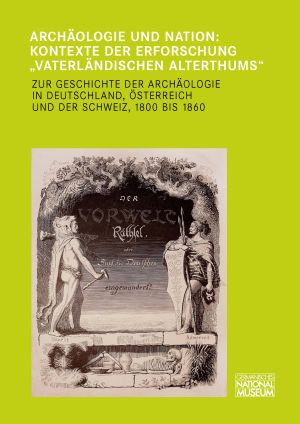How to Cite
License (Chapter)

This work is licensed under a Creative Commons Attribution-NonCommercial-NoDerivatives 4.0 International License.
Published
Tschechische Nationalbewegung, Revolution 1848 und die Wissenschaft
Jan Erazim Wocel und die erste mitteleuropäische Professur für prähistorische Archäologie in Prag
The Czech National Movement, the Revolution of 1848, and Scholarship: Jan Erazim Wocel and the First Central-European Professorship of Prehistoric Archaeology in Prague
Academics from Czech intellectual circles in Bohemia began conducting archaeological excavations as early as the 18th century. In the 19th century, the gradual emergence of the Czech National Revival movement, initiated by middle-class Czech citizens who wanted equality with their German-Austrian counterparts, introduced a nationalist aspect to Bohemian archaeology. It was in this context that the Czech National Museum was founded in 1818, with the first edition of its journal appearing in 1827, prompting an even greater engagement by archaeologists in the national movement. One such activist was Jan Erazim Wocel – an archaeologist, man of letters, and politician. He played a leading role in the Czech national movement during the revolutionary year of 1848. Later, however, he accommodated himself to the new establishment, earning himself, in recognition of his undisputed academic achievements, a tenured position as professor in (prehistoric) Bohemian archaeology at the University of Prague. His appointment was made, not least, for political reasons. In the words of the then Austrian Minister for Culture and Education, Leo von Thun-Hohenstein, he was expected to ‘make young students less susceptible to giddy nationalistic nonsense’.







